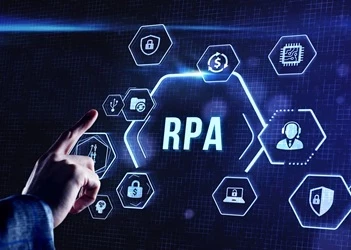Researchers from the University of Seville have developed an innovative AI-augmented framework designed to enhance robotic process automation (RPA) by integrating it with process mining. This development, published in IEEE Transactions on Automation Science and Engineering, addresses key limitations in traditional RPA implementation.
The Challenge with Traditional RPA
Traditionally, RPA implementation relies heavily on human experts to manually define the processes to be automated. This approach is often described as tedious, error-prone, and subjective.
Furthermore, conventional RPA bots are designed to follow predefined rules and struggle to adapt when business processes or the underlying IT systems change. This rigidity can lead to inefficiencies and automation failures.
The Solution: An AI-Augmented Framework
The new framework leverages process mining techniques to automatically analyze event logs from enterprise IT systems, such as ERP or CRM platforms. This allows it to discover, monitor, and improve business processes in a data-driven way.
How the Framework Operates
The AI-augmented framework functions in three main stages:
- Process Discovery: It begins by automatically discovering the as-is process model directly from event log data. This provides an objective view of how processes are actually being executed within the organization.
- Conformance Checking: The framework then compares this as-is model against a predefined to-be (ideal) process model. This step identifies deviations, bottlenecks, and inefficiencies, highlighting areas ripe for automation or improvement.
- RPA Script Generation: Finally, based on the insights gathered, the framework facilitates the automatic or semi-automatic generation of RPA scripts (the automation logic) that are precisely aligned with the actual processes.
Key Benefits of the AI-Augmented Approach
The researchers, led by José Luis Gámez-Guzmán, highlight several advantages of this integrated model.
“Our framework provides a data-driven and objective approach to RPA implementation, reducing the reliance on manual effort and subjective process definitions,” Gámez-Guzmán explained.
Key benefits include:
- The ability to continuously monitor and improve automated processes.
- The discovery of new automation opportunities that might be missed by manual analysis.
- The optimization of existing RPA scripts based on real-world performance data.
A Step Towards Intelligent Automation
The integration of AI, process mining, and RPA represents a significant step toward more intelligent, adaptive, and efficient business process automation.
This marks a shift from simple rule-based automation to a new generation of data-driven, self-improving automation systems.
Source: An AI-augmented framework enhances robotic process automation (RPA) with process mining

